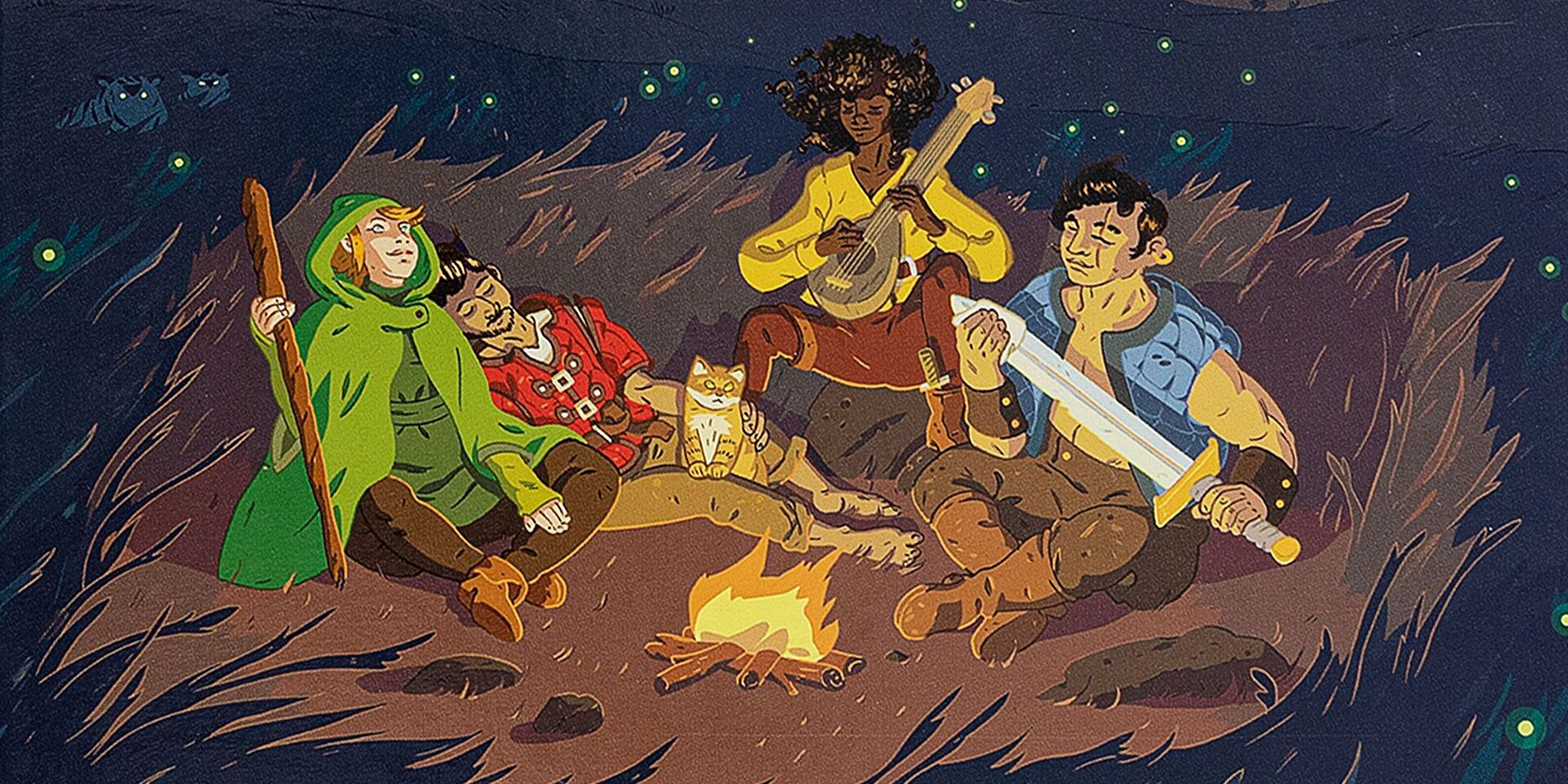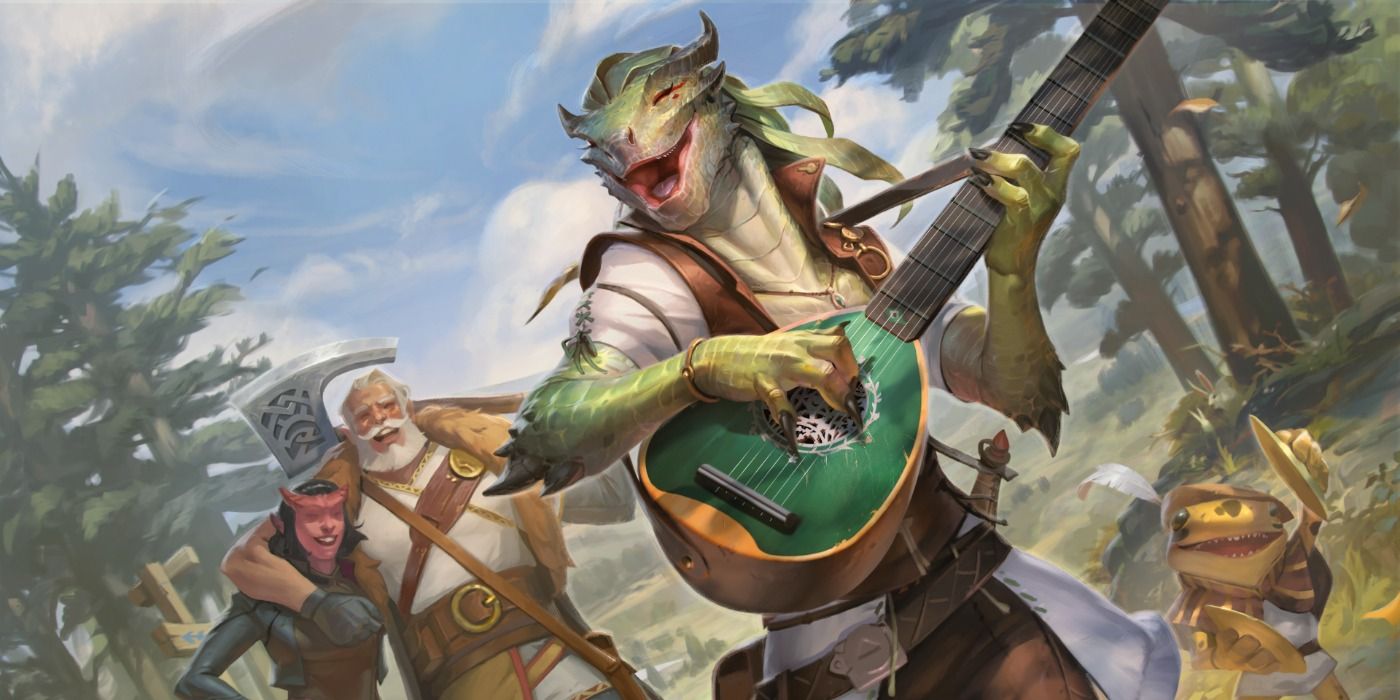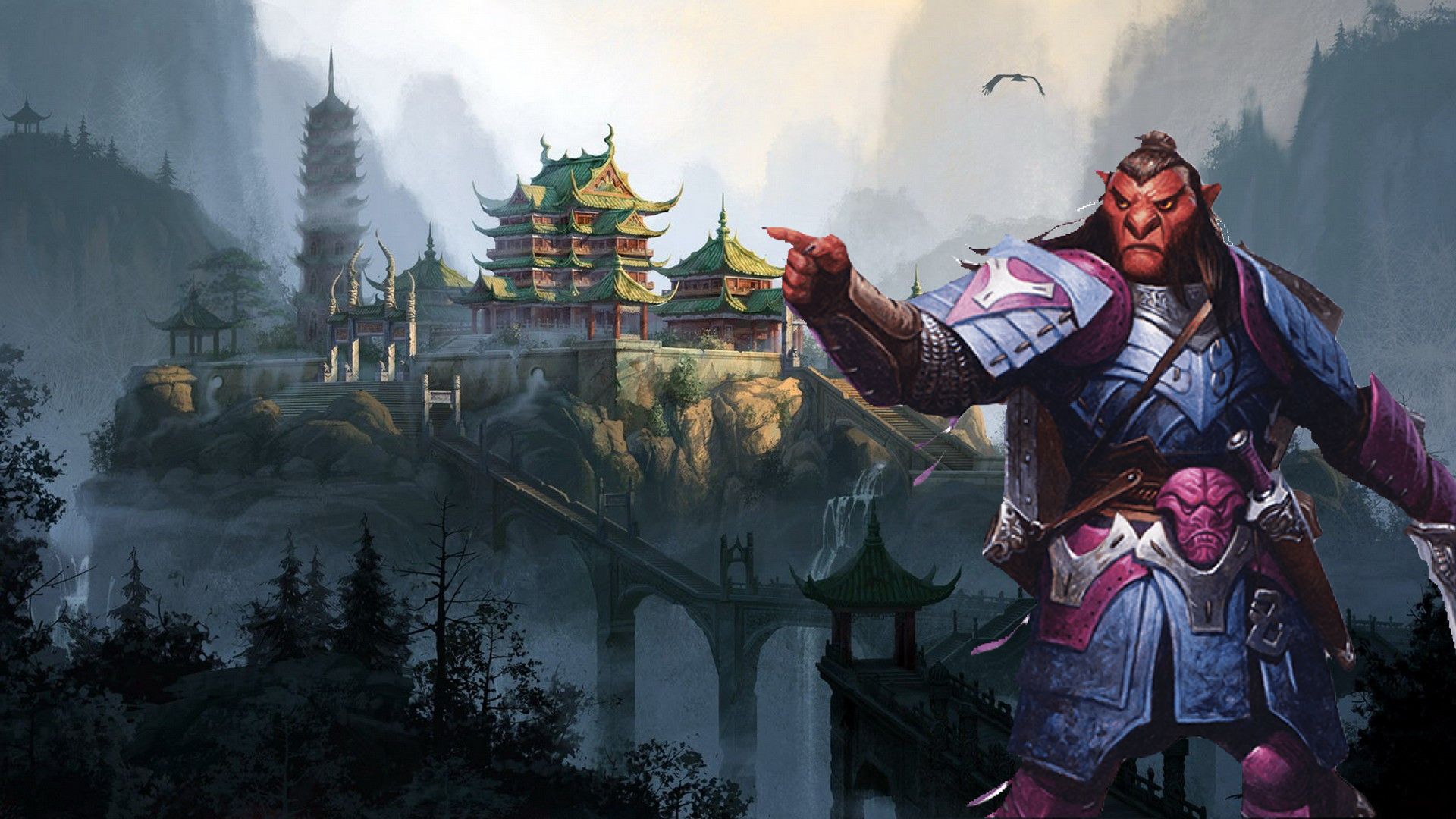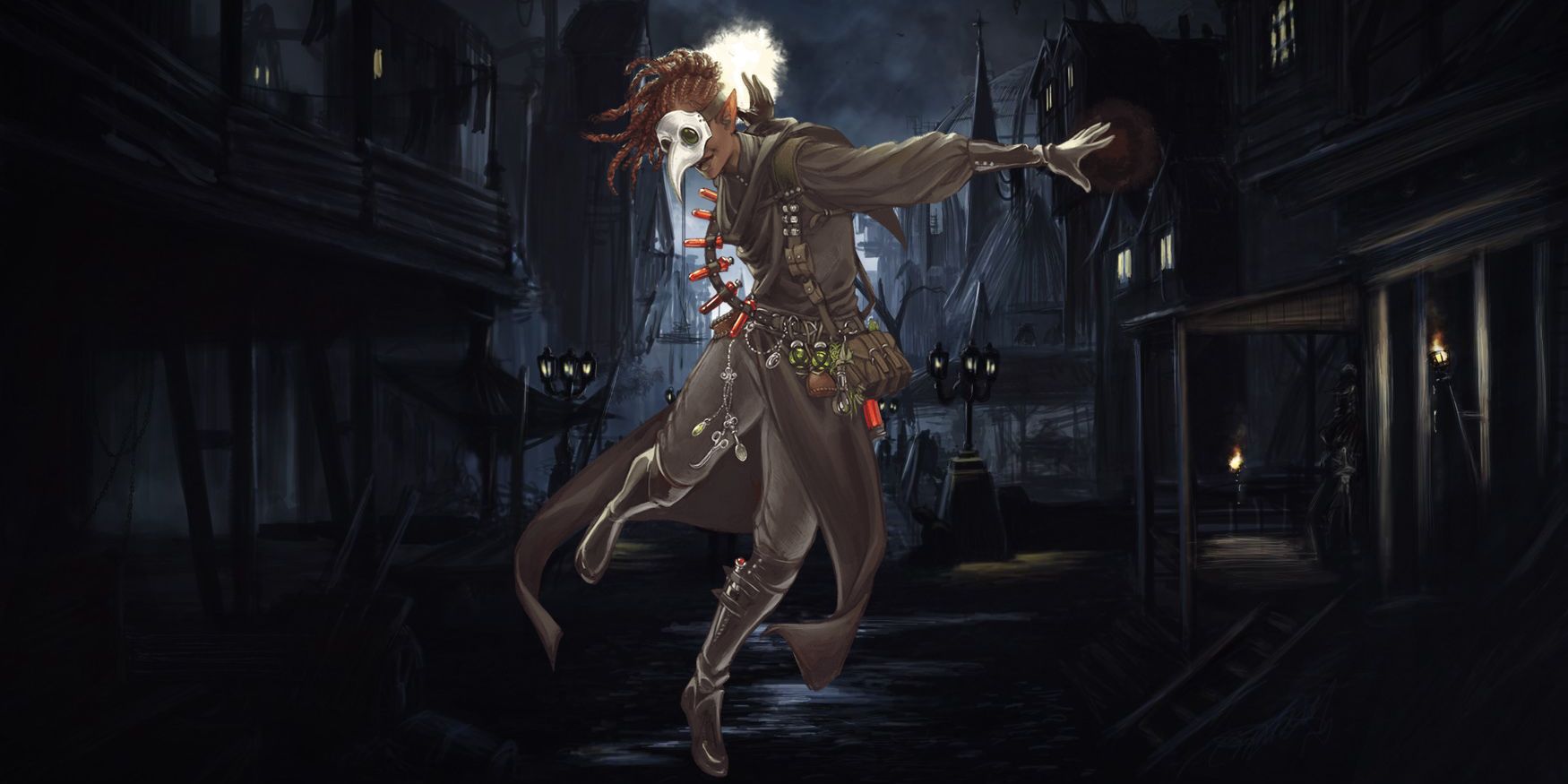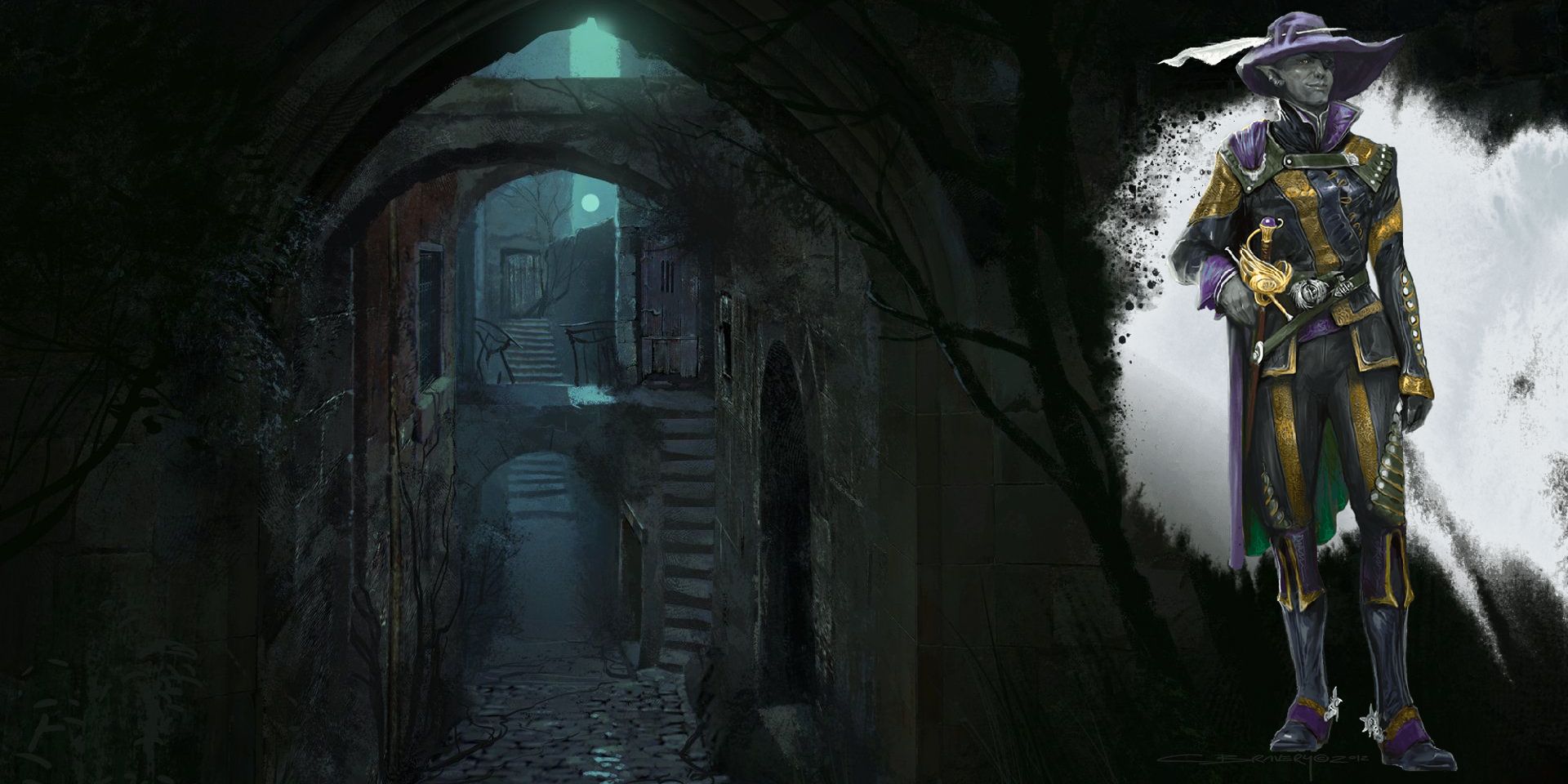Dungeons & Dragons is often thought of as the quintessential roleplaying game, and as such many of the game's subclasses are built to make good use of roleplaying opportunities. One of a dungeon master's many jobs is roleplaying the game's NPCs, but while some dungeon masters may scale this back in favor of a game built for dungeon crawling, there are many campaigns in which roleplay is an equal if not greater part than the combat or exploration. There are also a number of subclasses devoted to roleplay that can enhance it with interesting and creative abilities.
In design Dungeons & Dragons tends to focus on three core pillars: Combat, Exploration, and Roleplay. Each mechanic of the game is designed around one or more of those pillars, but not every mechanic hits all three. As such, some subclasses are going to be better suited to combat, like the battlemaster fighter, while some are better suited for exploring classic Dungeons & Dragons dungeon crawls, like the thief rogue. When it comes to roleplay, some classes give unique benefits to those willing to fully embody their characters and roleplay in the dungeon master's world.
Many things can make a subclass well-suited for roleplay in Dungeons & Dragons. An obvious boon is bonuses to charisma-based skills like persuasion, deception, and intimidation. Seeing as roleplay generally involves interacting with other characters in the game, social skills come into their own at the forefront of these interactions. Aside from obvious social enhancements, the flavor of a subclass can also make it more suitable for a roleplay-heavy campaign. Subclasses with additional features like a specific tool or mechanic can be prime material for great roleplay scenes should the player pick them up and run with them.
Eloquence Bards Tell Interesting Dungeons & Dragons Tales
Going from weak to overpowered, Dungeons & Dragons' Bards often control any social encounter they're in. The class of scoundrels and smooth-talkers has no shortage of subclasses that would spice up any roleplay-heavy campaign. One subclass rises above the others in this regard, and that is the college of eloquence. Beginning when they take this college, bards of eloquence can automatically score a 10 on a lower persuasion or deception roll, meaning that their words will always have a high impact. This ability has myriad uses, whether it is convincing a high-ranking general to divert his army or covering for the party rogue after they were caught with their hands in someone's coin purse. Their words are so inspiring that their bardic inspiration dice don't disappear after use, and can even spread to others besides the one being inspired, proving the D&D bard can outdo nearly any class.
A seasoned eloquence bard can inspire a whole party with one well-roleplayed bit of encouragement. Later on, these bards even get the chance to have their speech understood universally, meaning that any number of different creatures the dungeon master included in their world can understand and interact with eloquence bards, bringing a wealth of new roleplay opportunities to the table.
Dungeons & Dragons' Samurai Fighters Are Social Warriors
Fighters in Dungeons & Dragons are rarely thought of as a roleplay-heavy class. Their name alone locks them into the role of combat powerhouse. Xanathar's Guide to Everything then introduced the samurai fighter, and suddenly fighters had a subclass equally at home on the battlefield and in the court of a king. In addition to the pop-culture samurai staple of unflinching courage and resolve, the samurai fighter gains a suite of useful social skills perfect for any roleplay encounter.
Samurai begin this path by gaining proficiency in one of a variety of juicy roleplay skills, from history to performance. This added bit of outside combat skill is what makes Samurai one of the best martial archetypes for fighters in D&D. This connects well to the history of samurai as elegant courtiers in addition to fierce warriors and means that it isn't out of the realm of possibility for a grizzled fighter to be a master at a traditional style of theater or a musical instrument. Later, their wisdom can be added to their persuasion rolls, allowing them to bring their years of martial experience to any roleplay situation with anecdotes of harrowing battles or hard-won lessons.
The Way Of Mercy Let's Dungeons & Dragons Monks Decide Fate
Another class traditionally associated with dealing damage, Dungeons & Dragons fleshed out the roleplay opportunities of monks when it introduced the way of mercy. These monks are healers in addition to damage-dealers, and gain proficiency with medicine, insight, and herbalism kits. Any illness can be explained, treated, and cured with the right roleplay, and these monks are able healers when there isn't a cleric around. As they level, they gain the ability to alleviate a variety of symptoms and conditions without the monk needing any of D&D's game-breaking magic items, and each treatment can be roleplayed differently depending on the player. A curative salve to relieve blindness, or a bag of smelling salts to revive a stunned victim, all given opportunity by the skills this subclass provides.
Aside from healing, their different skills for damaging enemies can also be roleplayed medically, with plenty of nasty reagents to deal extra damage with their already powerful unarmed strikes. Combined with the mask granted at the beginning of this subclass, the monk can put on either a calming façade of healing or a dark mask of harm, all determined by the player. Monks of the way of mercy can heal and harm in equal measure, and the unique abilities granted by this subclass open the door to plenty of healer-based roleplay opportunities.
Mastermind Rogues Control The Conversation In Dungeons & Dragons
D&D's rogues can do twice as much damage as the brains of the operation. Upon taking the mastermind subclass they learn two languages and gain the ability to disguise themselves, forge documents, and become a shark at any gaming set they wish. A daring casino heist can provide hours of roleplay as the mastermind works the tables, bluffs their way into the vault, and disarms any suspicion in multiple languages. Not only are they highly skilled, but with enough observation, mastermind rogues can snoop out aspects of other people. This skill allows for the dungeon master's descriptions of NPCs to be brought to bear as the mastermind reads them like a book. As a final flourish to their mastery of roleplay, their capstone skill allows them to bluff even the most thorough of mystical lie detection.
Many opportunities to roleplay get overlooked in Dungeons & Dragons. These subclasses each bring something unique that can be leveraged by both players and dungeon masters for interesting roleplay opportunities. Whether it's the medical inclinations of the way of mercy monk or the elegant wisdom of the samurai fighter, each of these classes provides something that can make roleplay the focus of entire sessions. When a Dungeons & Dragons dungeon master loves to roleplay, any opportunity to engage in the world they've built or prepared and the story they have ready will leave a smile on both dungeon master and players alike.

